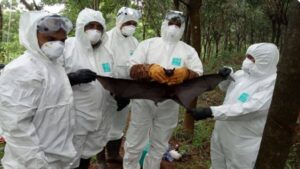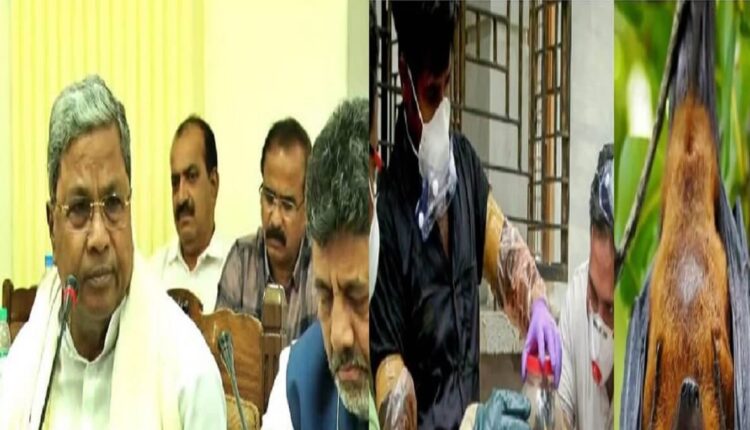Nipah Virus cases Surge: Karnataka Issued strict guidelines
Seven villages have been declared as containment zones in Kerala. In addition, restrictions have been imposed in the border areas of Dakshina Kannada district which is part of Karnataka – Kerala Border.
Nipah Virus cases are increasing day by day in Kerala. After this, holidays have been announced for schools and some government offices. Seven villages have been declared as containment zones and it is said that complete lockdown will be implemented in Kerala.
Two people have already died due to Nipha fever in the state of Kerala and now another person has been confirmed to have Nipha virus in Kozhikode. Karnataka High Alert has also been announced in the background of increasing cases of Nipah Virus in Kerala. In addition, restrictions have been imposed in the border areas of Dakshina Kannada district which is part of Karnataka – Kerala Border.

Dakshina Kannada District Health Department has taken all arrangements to prevent Nipah virus. The health department has instructed the police department to open a check post to inspect all vehicles, including goods arriving from Kerala state to Karnataka. All those arriving in Karnataka from the state of Kerala should also be screened. Also, the health department has instructed to check the fruits coming from the vehicles loaded with goods from Kerala to Karnataka.
What are the symptoms of Nipah virus?
Nipha virus infection is usually transmitted from animals to humans. It is mainly carried by bats. The possibility of spreading this infection is very high because bats eat fruits and vegetables. The duration of this virus is 4 to 12 days. People infected with the virus will initially experience fever, headache, fatigue and vomiting.
A patient infected with Nipah may experience changes in behavior. Especially cold, respiratory problems can be very common. Others may also suffer from muscle spasms and extreme fatigue.

Nipah High Alert in Dakshina Kannada District:
The increasing number of Nipah infected cases in Kerala has increased the anxiety of the people of the coastal part of Karnataka. In this context, Dakshina Kannada District Health Department has taken strict action. Dakshina Kannada District Health Officer Dr. Sudarshan has given information about this.
All Primary Health Centers (PHCs) in the border areas of Dakshina Kannada district have been instructed to take precautionary measures and to keep a close watch on people suffering from fever. The state government has already set up an isolation ward at Wenlock Hospital.
Not only government hospitals but also private hospitals and medical college hospitals have been advised to make necessary arrangements. In case of any kind of disease symptoms, immediately inform the DHO and the surveillance officer. Dr. Sudarshan urges the public not to ignore fever and seek medical advice.
The people of the district should not panic for any reason about the Nipah virus infection detected in Kerala. No one should panic as soon as the fever comes. He said that not all cases of fever are considered as nipah.
Nipah guidelines implemented in Karnataka:
The state government has said that it will take voluntary and vigilant measures along the Kerala border.
The state government will take necessary action to convene a meeting of the district rapid response team regarding the management of Nipah virus.
Also Read: Kerala Lockdown Again: Schools Closed, Imposed Strict Restriction
All government and private health institutions in Dakshina Kannada report Nipah virus cases and immediately inform the district office or unit.
Provision of separate 10-bed wards for management of Nipha virus in district hospitals, taluk hospitals and all medical college hospitals. Fever surveillance units will be strengthened for all Primary Health Center (PHC) doctors.
Steps will be taken to create awareness among health professionals, especially surgeons about this virus and establish an effective system.


Comments are closed.